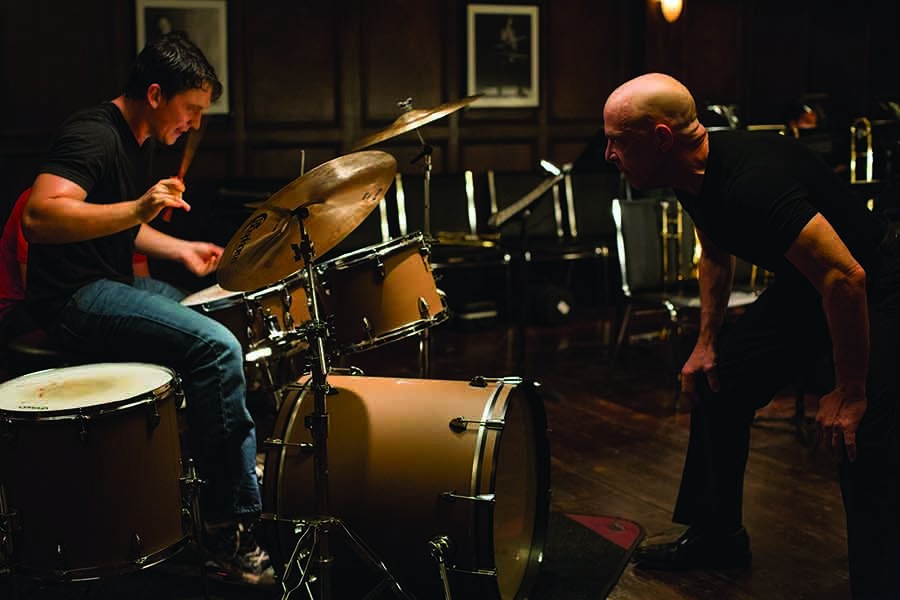Like a 107-minute nonstop boxing match, Whiplash is a brutally unsettling jazz-infused drama featuring an electrifying teacher-student struggle that is so brilliantly exhausting it deserves a five-star rating.
Damien Chazelle, a 29-year-old up-and-coming director, delivers an ingenious work that is swarming with so much profanity, cynicism and blood, that it is distantly comedic, grossly uncomfortable, and altogether provoking.
Though gratuitous and in-your-face, musicians and cinephiles alike will surely agree that this film is nothing short of mind-blowing, complete with an Oscar-worthy score and an Oscar-worthy cast (of basically two). For the average moviegoer, Whiplash is like a thrashing roller coaster you just can’t get off, managing to leave you queasy and disoriented. But still, you want to go again.
The film follows Andrew Neyman (Miles Teller), a first-year drummer at a fictitious New York performing arts university who is aspiring to be the next great Charlie Parker. But first, he needs to be invited into the renowned jazz band conducted by the acclaimed professor and musician, Terence Fletcher (J.K. Simmons).
According to Fletcher, “the most dangerous words in the English language are ‘good job’.” He uses sadistic and abusive teaching tactics to intimidate and disparage his students, convinced that agony and humiliation are the preludes to greatness. A combination of racial slurs, curse words, vulgarity and personal insults by Fletcher propel Neyman into a psychotic frenzy, driving him to practice so ruthlessly that his hands are literally dripping with blood during a few scenes throughout the film.
This cinematic element coupled with the intensity of the loud and upbeat score gives the film a thriller-like resemblance, hypnotically juxtaposing the subtlety and innocence of jazz music with a gory battle against inadequacy and self-deprecation.
The score, in and of itself, acts like the third major character in the film. It’s as if you could watch the piece sans dialogue, and still fully understand the emotional storyline of the film, each scene perfectly correlating to a conversational and expressive piece of music.
Teller and Simmons give the performances of their lifetimes, with so much intensity, rawness and commitment that, at times, you want to jump out of your seat and throw a punch at them. Both underappreciated artists, Whiplash allowed both actors to prove that their talent is undeniable – their dynamic and believable performances making them worthy of front row seats at the Academy Awards.
The thematic elements to this film are well intended and, frankly, vaguely accurate. Fletcher justifies his actions by explaining that praising every failed attempt or handing out a trophy to every team member sends the message that being sub-par is recognizable or sufficient. Unfortunately, the mediocre musician, athlete and student is left with a diluted sense of true mastery and convinced that they don’t have to work any harder; their wholehearted efforts making them some sort of winner. Fletcher’s ambitious approach to teaching is wholly unrealistic, hyperbolizing the idea that true potential can’t be grasped without failure, force and pressure.
The finale of the film might be some of the most exciting 10 minutes of cinema to ever be produced. With a drum solo that will leave your ears ringing and an exhilarating last standoff between Neyman and Simmons, Whiplash’s freakishly satisfying climax and unparalleled originality will surely be buzzed about for years to come.


